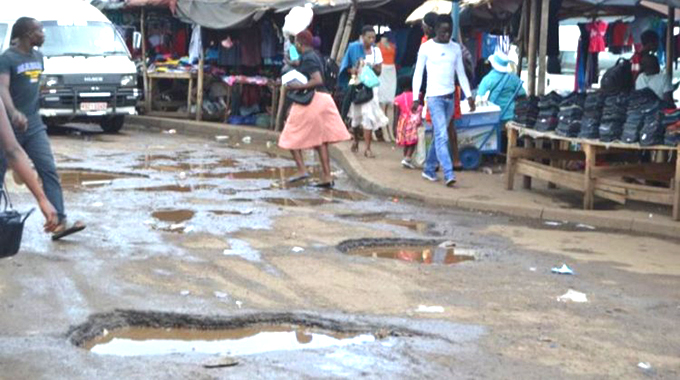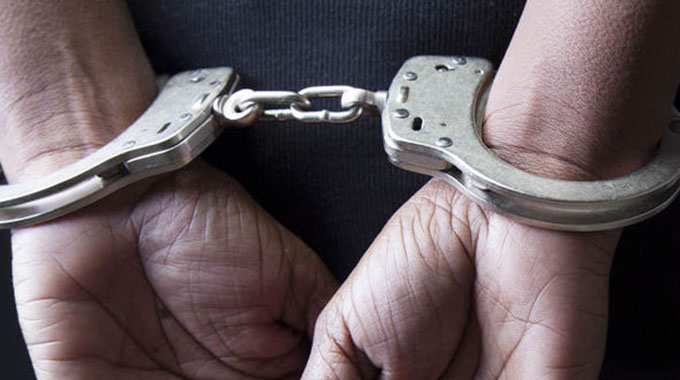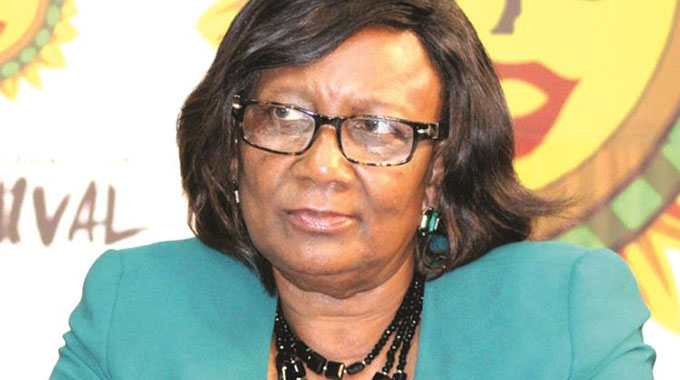Poor service delivery irks Harare residents

Blessings Chidakwa Municipal Correspondent
The year 2019 could go down in history as the year in which the Harare City Council spent fighting a number of problems that emerged, instead of delivering quality services as expected by the residents.
It is indeed a year which the city authorities quickly want to forget, hoping that the new year brings with it a new and favourable season. That the year 2019 was characterised by failures for the city authorities is not an understatement.
The city authorities failed to provide efficient refuse collection, no suburb received water on a daily basis, and the road network worsened, with potholes scattered across roads.
The city’s spending patterns and priorities irked the residents who wanted funds to be directed to issues that directly affected them.
For example, a month ago, the city fathers splashed close to $1 million on iPads, while Mayor Herbert Gomba and four senior council officials, are currently on a reciprocal five-day visit to the Chinese city of Nanjing, spending US$32 500 on the jaunt.
Residents believe the trip could have been skipped since it is unlikely to bring any solutions to the problems being faced by the city.
The hosts are taking care of the team’s local transport, food and accommodation expenses, allowing the council bosses to spend the US$32 500 on other things.
Among the problems cited above that haunted the city, the road system emerged as one of the most outstanding, as motorists had a nightmarish experience navigating the roads.
The city set an ambitious target of repairing, maintaining and constructing new roads covering 1 130 kilometres, but a mere 28 kilometres were done throughout the year.
Presenting the city’s 2020 budget recently, Finance and Development Committee chairperson, Councillor Luckson Mukunguma, conceded that the city’s road network was in a shambles.
“The state of our roads remains deplorable and this year we managed to do only 10km of the targeted 545km, then in terms of preventive maintenance we did only 18km of the targeted 585km,” he said.
“This was largely due to the late disbursement of funds and price variations caused by distortions in the market.”
Most of the roads in the city have outlived their normal lifespan of 20 years, while some were constructed during the colonial era.
Years of neglect and failure to rehabilitate the roads over the years have left them in a state of disrepair.
This has put a dent on council’s ambitions of achieving a world-class city by 2025.
While council bosses never run short of words to defend their penchant for luxury, excuses are the order of the day when it comes to service delivery issues, specifically roads.
Council either blames Zimbabwe National Road Administration (Zinara) for late disbursements of funds or it is another excuse for failure to deliver.
“We constantly requested more funds to implement road works, but Zinara did not respond positively to our pleas,” said Cllr Mukunguma.
But Transport and Infrastructural Development Minister Joel Biggie Matiza last week said all councils that did not explain how they used the funds they got will not get new al- locations.
He said most councils tend to buy new vehicles and not deploy funds towards road repairs and construction.
Residents are increasingly getting frustrated by the state of the roads.
A motorist, Mr Tawanda Mukwazhi, said potholes have resulted in most vehicles spending a lot of time being serviced and not on the road.
Tyres and suspension have become the major victims, and motorists are spending a lot of money on them.
“Driving daily on some of the damaged roads is not only a risk to my safety, but the vehicle as well,” said Mr Mukwazhi.
Mr Tinarwo Maketo said council should be innovative and look for other sources of funding rather than relying on Zinara for road mantenance.
“There has been a constant improvement in terms of road rehabilitation over the past two years, but this year, little progress was evidenced,” he said.
“It is high time Harare engages the public because waiting for Zinara alone is not enough as the situation is now worsening.”
The city authorities have since assured residents that next year, they will ring-fence some of the money from City Parking and channel it towards sprucing up roads.
“In order to give hope for trafficable roads to the populace, your council will ring-fence revenue from City Parking (Private) Limited and use it as a leverage to borrow to fund other roads programmes,” said Cllr Mukunguma.
“We hope that through the efforts alluded to above, we can be able to do 120km of roads.”
Harare has budgeted $108,4 million for roads next year, with the breakdown as follows: roads infrastructure $101,4 million, traffic management $4,87 million and traffic enforcement $1,86 million.











Comments